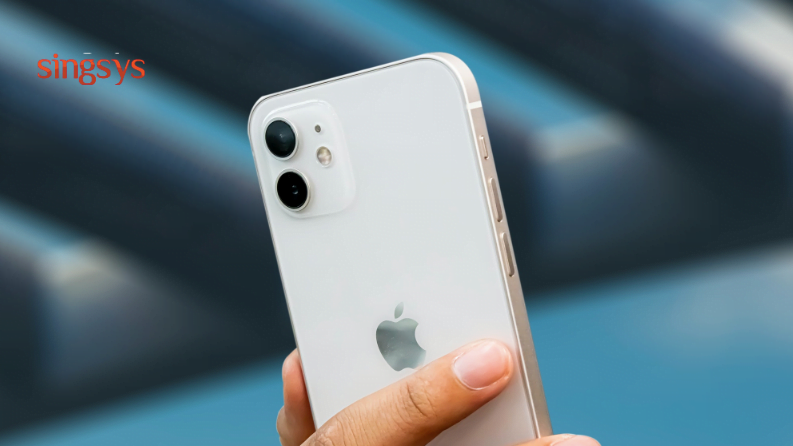Why iOS 18 is the Best Update Yet: Everything You Need to Know
Learn about the groundbreaking features of iOS 18 and why it’s considered the most impressive update to date. Stay ahead with our detailed insights.
According to someone who knows things, the corporate is developing a minimum of two relevant emergency functions that believe in satellite networks and aims to launch them on future iPhones.
Apple Inc.’s introduction of satellite capabilities to the iPhone is focused on emergencies, allowing users to text first responders and report crashes in areas not covered by cell phones.
According to someone who knows things, the corporation is developing a minimum of two relevant emergency features that believe in satellite networks and aims to launch them on future iPhones.
Bloomberg believes Apple has been performing on satellite technology for several years and therefore the team has been exploring the concept since a minimum of 2017. TF International Securities analyst said the phone probably operates on a spectrum owned by Globalstar Inc. it speculation that the satellite capabilities of subsequent iPhone are going to be enhanced at this point speculated that doing this would make the iPhone do something similar to the satellite. It frees phone users from the need to rely on cell networks. But Apple’s plans to initially focus on helping its customers deal with crisis scenarios.
The main segment, ‘Emergency Messages through Satellite’, permits clients to message crisis administrations and contacts by means of satellite organizations when no phone signal is free. As integrated into the Messages application, it is displayed as a gray message bubble rather than green or blue The second feature is a tool to report major emergencies, such as plane crashes and sunken ships, using a satellite network Apple’s codename Stewie The texting via satellite tool limits messages to shorter lengths: the text is automatically pushed through to emergency contact’s calls, even if the auto setting is turned on.
One of the designs that are planned, it will allow users to enter “emergency SOS” and send messages. Typically, you enter the contact’s name. In addition to the delivery of texts, it is possible that the service will eventually be able to handle any calls. These options are helpful for areas where 4G or 5G coverage is not available, such as mountains and remote lakes. As part of a broader effort, Apple has also considered eventually deploying its own satellites, but this feature will likely depend on existing networks.
The subsequent crisis highlighted centers to permit clients to report an emergency. The phone will ask if there have been several types of emergencies such as cars, boats, planes, and fires. The systems can also provide more specific information, such as a person falling or sinking on a ship. Users are asked if they need search and rescue services, if suspicious behavior or weapons are involved, and if a person has been injured. Upon arriving at the emergency service, this feature can send a virtual card for the health app with a list of information such as the user’s location, medical ID, user’s medical history, age, medications and height, weight, etc. It can likewise advise the user’s crisis contacts, commonly a person’s family, companions, or specialist.
Of course, both functions depend on satellite availability and local regulation. These aren’t designed to work in all countries, and Apple has created a mechanism that asks users to get out and walk in a specific direction so that the iPhone can connect to satellites. Links to networks are not always instantaneous. Functional tests show that it can take up to a minute to get up and running. To connect to the satellite, Apple requires a special chip. The company is developing custom cellular modems for use in the next few years, but will still rely on Qualcomm Inc. The modem in the short term. Speculations say that the following iPhone will have satellite abilities flooded Globalstar’s offer by 64% on Monday. The company has previously said it has contracted with an unidentified party to develop the new service, but that disclosure is evidence that it is now a partner of Apple, and some believe.
Apple will not partner with Globalstar’s rival Iridium Communications Inc., people versed in the matter said. Another satellite company, Omnispace LLC, said Tim Farrar, an industry analyst who was not yet dedicated to building systems that could support such services. Globalstar abandoned some of its profits on Tuesday, opening the market in New York and dropping 12%. Iridium fell to 6.2% and Apple to less than 1%.
Apple plans to release the latest iPhone as early as a mid-next month. Notwithstanding conceivable satellite provisions, the organization will incorporate a refreshed Face ID framework, quicker processors, and smaller presentation patterns. The new model also includes significant camera hardware and software upgrades.
Jun 18th, 2024
Learn about the groundbreaking features of iOS 18 and why it’s considered the most impressive update to date. Stay ahead with our detailed insights.
Mar 14th, 2024
Taxi Booking App Development Company in Singapore
Feb 28th, 2024
Finding the right mobile app developer is important to achieve success in Dubai’s competitive tech industry, which is characterized by intense growth. The fact that there are so many possibilities […]